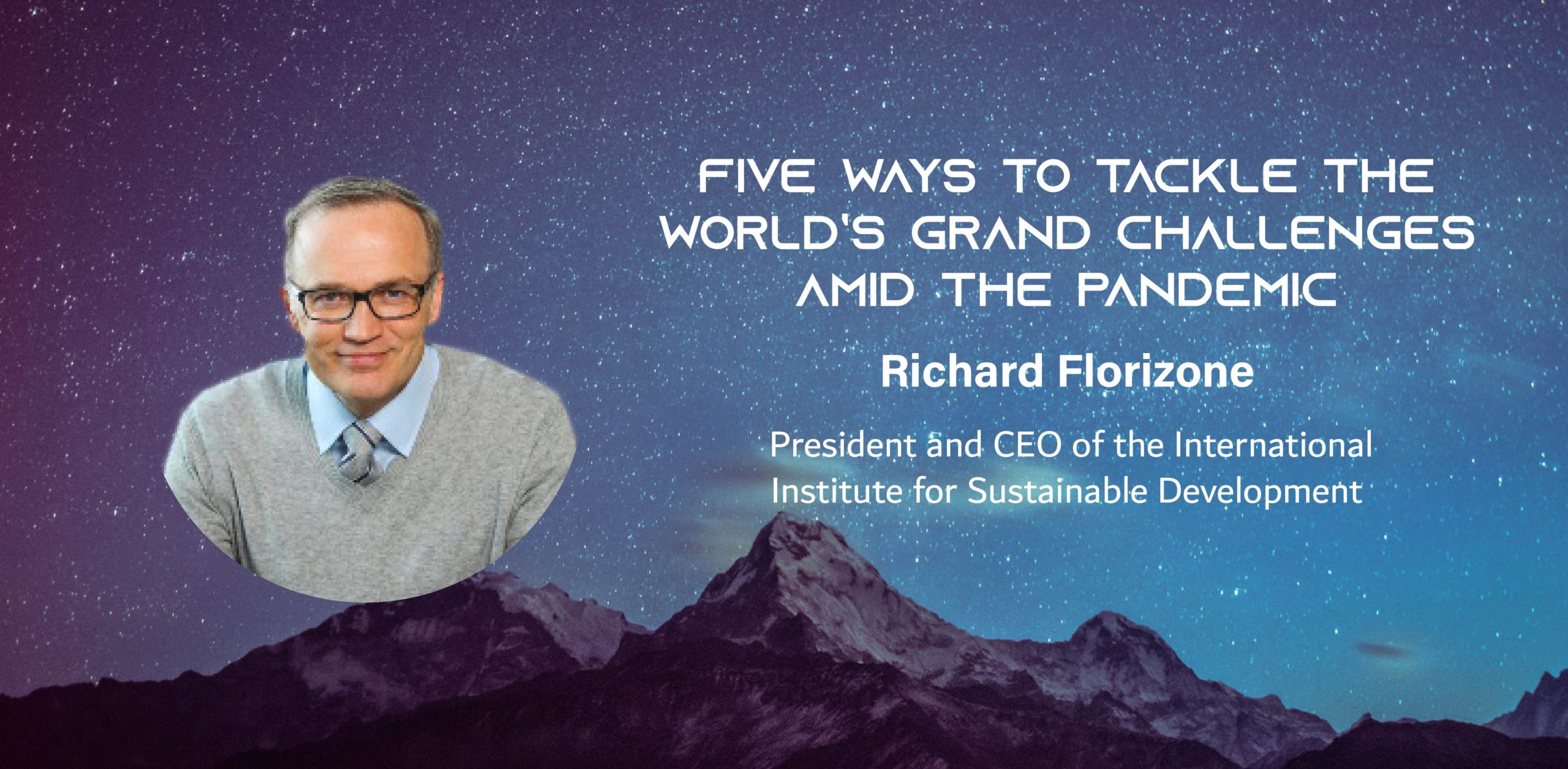Five Ways to Tackle the World’s Grand Challenges Amid the Pandemic

Author(s):
Richard Florizone
International Institute for Sustainable Development
President and CEO
How can we continue to make progress on the big challenges facing the world amid the global COVID-19 pandemic?
In 2015 the United Nations adopted the Sustainable Development Goals (SDGs), a framework of seventeen global objectives to deliver a better and more sustainable future by 2030. The SDGs target the big challenges facing humanity, including poverty, inequality, climate change, peace and justice.
Then along came COVID-19, shattering lives, disrupting economies and testing governments around the world.
COVID-19 is a humanitarian crisis that requires a response focused first on fighting the virus, mitigating its impact, and supporting those who are directly impacted by it. At the same time, we must also look to the horizon and plan for a longer-term recovery that builds back better.
The full impact of the pandemic and its aftershocks won’t be known for years. However, for those of us working in science and innovation here are five ways we can still make progress on the grand challenges embodied by the SDGs:
- Invest in resilience. In the early days of the pandemic it was heartbreaking to see lives put at risk because of shortages of critical medical and safety equipment, including masks that cost less than a dollar. A lack of planning and the subsequent shortages demonstrated the critical importance of resilience – being able to anticipate, cope and adapt to shocks and stresses. In the years ahead, let’s invest in the research and innovation that can build more resilient systems – not just to respond to future public health emergencies but also to prepare for the longer-term challenges posed by climate change.
- Advocate for a green recovery. As they begin to get a handle on the virus, several countries in Europe and Asia are pursuing a “green” recovery, with investments in areas like clean energy, energy efficient buildings and transportation, green workforce development and R & D. In July, the European Union committed at least 30 percent of its multi-year budget to climate objectives. Let’s reject the false compromise between economic growth and environmental impact and invest instead in a green recovery that tackles the climate challenge and creates the jobs of the future.
- Tackle inequality. The pandemic has amplified inequalities, with greater impacts on women, front-line service workers, communities of color and others least able to absorb its health and financial fallout. This is even more true in developing countries, where the World Bank has warned that the past decade’s progress in building human capital is at risk due to the pandemic. In recent years the Canadian research community has increased its attention to inequality through efforts like diversity initiatives, outreach and engagement, and inclusive innovation and economic development. There is clearly much more to do. Addressing inequality builds a better world, but it also strengthens science. By removing economic barriers and embracing a diversity of perspectives we ensure science has access to the very best ideas and people.
- Redouble public engagement. Science communication is more important than ever amid rising populism and the misinformation rife in the pandemic. Public engagement has been a growing priority in Canadian science the last decade. As we’ve unfortunately seen in the few years, scientific facts don’t always win the day. We have to find new ways to connect with the public and decision makers on complicated scientific and technical issues, especially when lives are at stake. And we can never back away from our commitments to evidence and the fundamental importance of science and the scientific method. As members of the science and innovation policy community, these important tasks fall directly on our shoulders. If we don’t do it, who will?
- Encourage Canada to go global. Our government’s first priority has been on the health and well-being of its own communities and citizens – as it should be. At the same time, the pandemic has taught us that disease anywhere is a risk everywhere. Viruses don’t need visas to travel. We must not forget these interconnections – and responsibilities – to others around the world. Let’s continue to advocate for international development assistance and global science partnerships, to build a stronger and more sustainable world for all.
The COVID-19 pandemic is a humanitarian crisis, and our attention must stay focused on its direct impacts while looking towards the horizon. In the words of UN Secretary General António Guterres, “We need to turn the recovery into a real opportunity to do things right for the future.” With the SDGs as a guide, we can indeed build a better Canada – and a better world.

